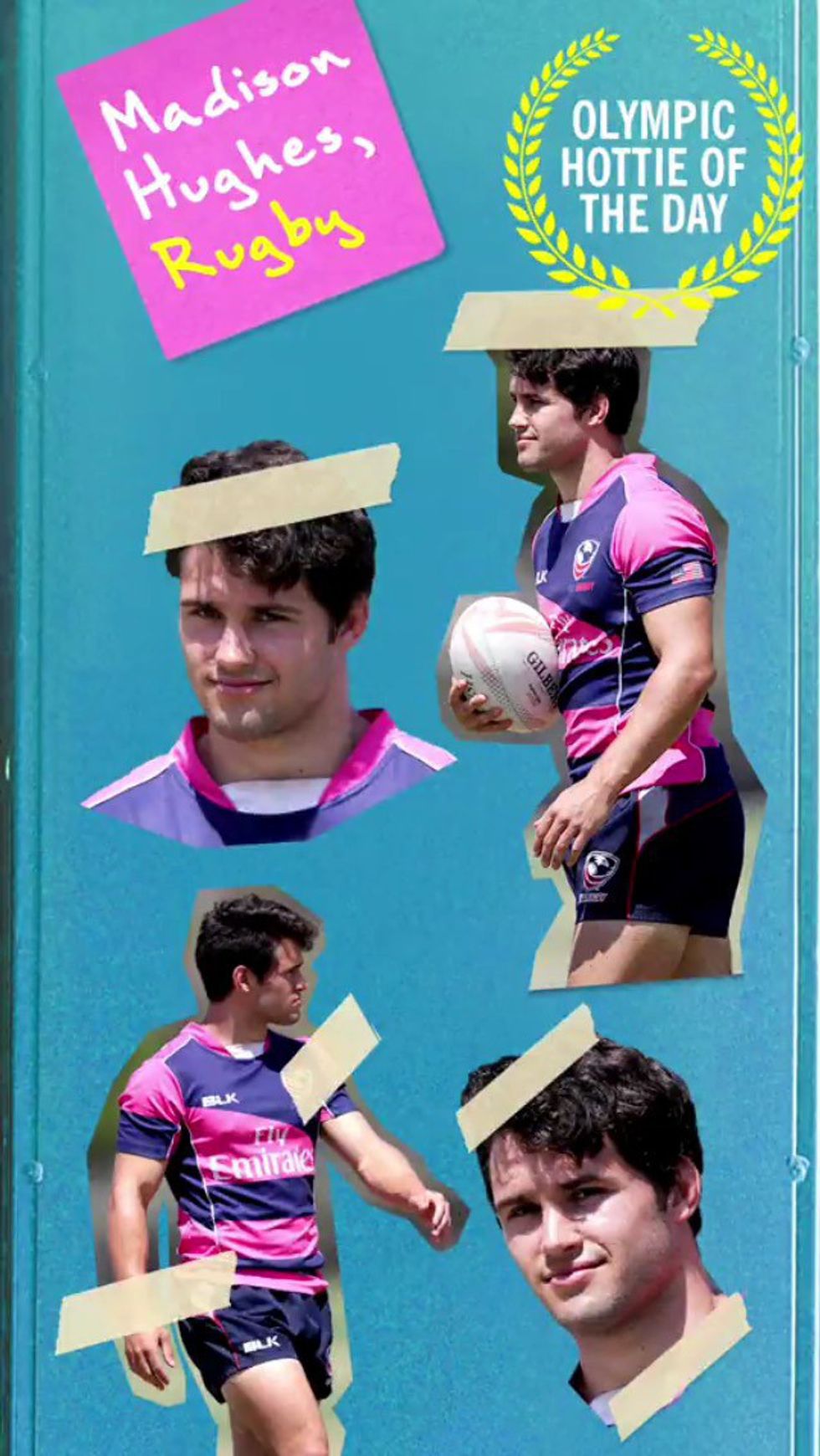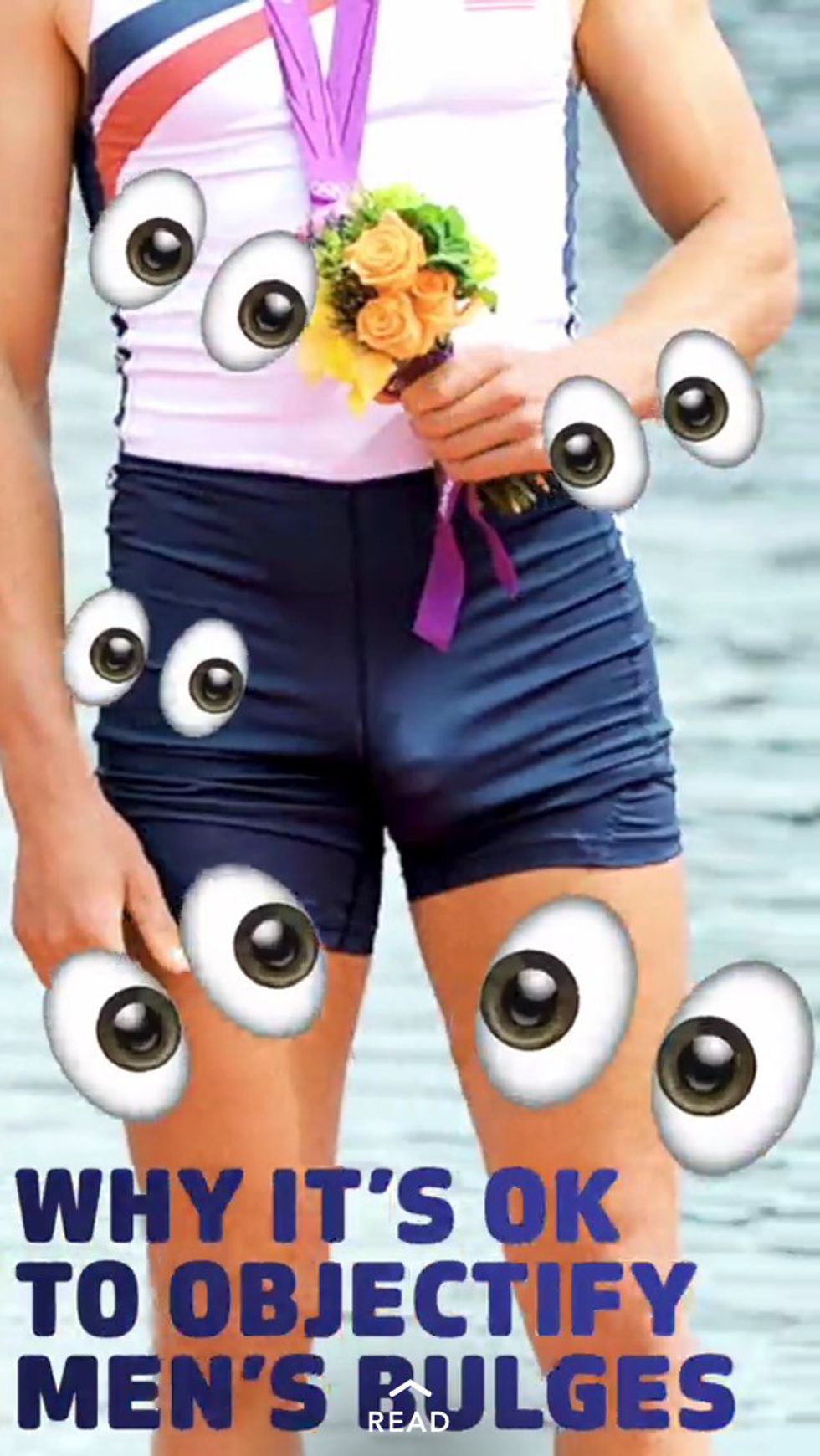The year is 2016. Olympic athletes have almost reached the peak physical condition of the human body. Gymnasts defy physics, swimmers reach almost perfect form and weightlifters push their bodies to the extreme. Even commentators have become more skilled! That is, by demeaning athletes in any way they can.
Sexism has been very apparent at the 2016 Olympics in Rio. Media coverage has been quick to degrade female athletes of every nation.
American Corey Cogdell, who won her second bronze medal in Women's Trapshooting, was referred to as "The Wife of a Bears' lineman" in a Chicago Tribune article.
Commentators suggested that Katie Ledecky’s success in swimming is because she swims like a man, as if she didn’t have perfect form.
And when Katinka Hosszu from Hungary crushed the world record in the 400-meter individual medley, commentators credited her husband
as “the man responsible” for her win. These are only a few examples of the sexism presented by the media in the past few weeks.Sam McCarthy plays lacrosse for the Stonehill College women's lacrosse team. She said as a female athlete it is disappointing that women in sports are still being overlooked.
"I find it to be disrespectful that the women who worked so hard to get to where they are, are not receiving the credit they deserve," McCarthy said.According to McCarthy, the sexism carries over to the college level in regards to game attendance.
"Stonehill is pretty fair with its female athletes. However the women's sports are not as well attended as the men's, and this has always significantly bothered me," she said.
Another college athlete that has noticed the sexism in Olympics media coverage is Brooke Troup, goaltender for Saint Joeseph's College of Maine women's soccer team. She said that although commentators may not intend to overlook female athletes, it is still disappointing
"It is sad that so many women work so hard to reach their dream of becoming an Olympian and do not get recognized for all their hard work and effort that got them this far," Troup said.
Much like Stonehill College, Troup said St. Joe's female athletics do not have as good attendance as the men's games.
"Many people believe that women are treated just as well as men are, but from a women's point of view, women are truly overlooked and do not receive the same respect that men receive," Troup said. "I do believe that equality has come a long way, but not in the life of an athlete."
Both women said that female athletes in the Olympics provide a sense of inspiration for their athletic career, so when their Olympic accomplishments are overlooked, it makes them feel discouraged.
And the sexist media coverage does not end with the female athletes. The media and the nation objectify male athletes as well, specifically swimmers and rugby players.
Cosmopolitan has a daily feature on its Snapchat called “Olympic Hottie of the Day," which is not the worst thing in the world to be featured on, but it does take away from the skill of that athlete. Some athletes featured have been Steele Johnson (diving), Madison Hughes (rugby) and Ryan Lochte (swimming).
Cosmo featured another very unique article on their website called “Guess the Olympic Bulge”
where they provide a zoomed in picture of an Olympic athlete's crotch so readers can try to guess whom the crotch belongs to, turning objectification into a game.Even more recently, Cosmo set up a segment on their Snapchat story titled “Why it's OK to objectify men’s bulges," addressing the backlash they have received about the previously mentioned article. The only defense they had was that women get objectified so men should too, thus perpetuating the cycle of objectification society has fallen into.
Conor O’Malley, of the Stonehill College men's rugby team said he was unphased by the "Olympic Hottie of the Day" feature, but appalled by "Guess the Olympic Bulge."
"That seems to be taking advantage of the uniform swimmers have to wear," O'Malley said. "A full frame view of their crotch is probably not how they wish to be viewed."
Another important thing to mention is that John Miller, NBC's chief marketing officer, insisted that women watch the Olympics because they are “the ultimate reality show” and they don’t actually care about the competitions. This type A example of women as drama addicts is very outdated considering in 2016 plenty of women are die-hard sports fans. People all over have been criticizing his words.
"It shows what little progress has been made over the years. I hope this is an eye-opening issue for most women," McCarthy said.






















